HASAKAH, Syria — In a network of prisons and detention camps across northeastern Syria, the Islamic State militant group has an army in waiting, and fanatical support for its brutal regime lives on.
For now the prisons and camps are guarded by the American-backed Syrian Democratic Forces (SDF), a Kurdish-led fighting force that battled alongside the U.S. military to destroy ISIS’ so-called caliphate.
The Islamist group’s radical ideology was never fully defeated, and after the ouster of longtime Syrian dictator Bashar al-Assad late last year, as well as the arrival of a new administration in Washington, some are fearful that ISIS could be unleashed on the world once again.
‘Army in detention’
In northern Syria, around 10,000 alleged ISIS fighters are locked away in 28 jails, the largest of which is Al Sina Prison on the edge of the small city of Hasakah.
Crowded in the drab, concrete prison are thousands of men, many of them captured on the battlefield during ISIS’ last stand in 2019, who sit or lie around in tattered brown jailhouse uniforms, dozens in each cell.
Among them is Ibrahim, a Moroccan national who admitted in an interview with NBC News late last month that he was an ISIS fighter but insisted that he was no longer a threat.
“If I were dangerous, I would not have surrendered myself,” said Ibrahim, who declined to give his last name. “I just want to go back to my county.”
Imprisoned for six years, he is one of the many foreign detainees whose home countries have failed to repatriate them.
For SDF commander Gen. Mazloum Abdi, these prisoners are among the most dangerous. “They are hard-liners,” he said. “We have massive numbers in our prisons, and this constitutes an ongoing threat.”
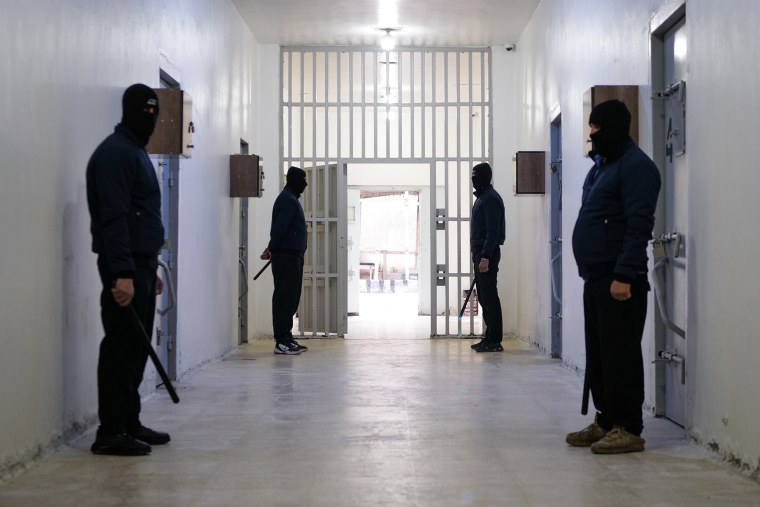
That threat was brought sharply into focus just over three years ago when ISIS launched a large attack on Al Sina Prison, killing dozens of guards and freeing hundreds of prisoners. Battles raged around the prison for over a week until they were eventually quelled with the help of the U.S. military.
“We have intelligence that ISIS is planning to attack the prisons again, because the prisoners are considered to be a primary force for them,” Abdi said. “If they find a way out, ISIS will be able to reorganize and reconstitute.”
Those concerns were repeatedly echoed by the U.S. military, which said in a statement last month that the prison population was “a literal and figurative ‘ISIS Army’ in detention.”
‘One of the most dangerous camps in the world’
On a barren stretch of desert roadway, just 26 miles east of Hasakah, is the sprawling Al Hol Camp — home to around 40,000 people, 93% of whom are women and children, according to the most recent figures from the United Nations, published last February.
Many of them are the families of ISIS fighters and SDF officials said the camp was considered a breeding ground for the next generation of militants.
“A mindset of radicalism is instilled in the residents,” said Jihan Hanan, Al Hol’s director. “They are only becoming more extreme.”
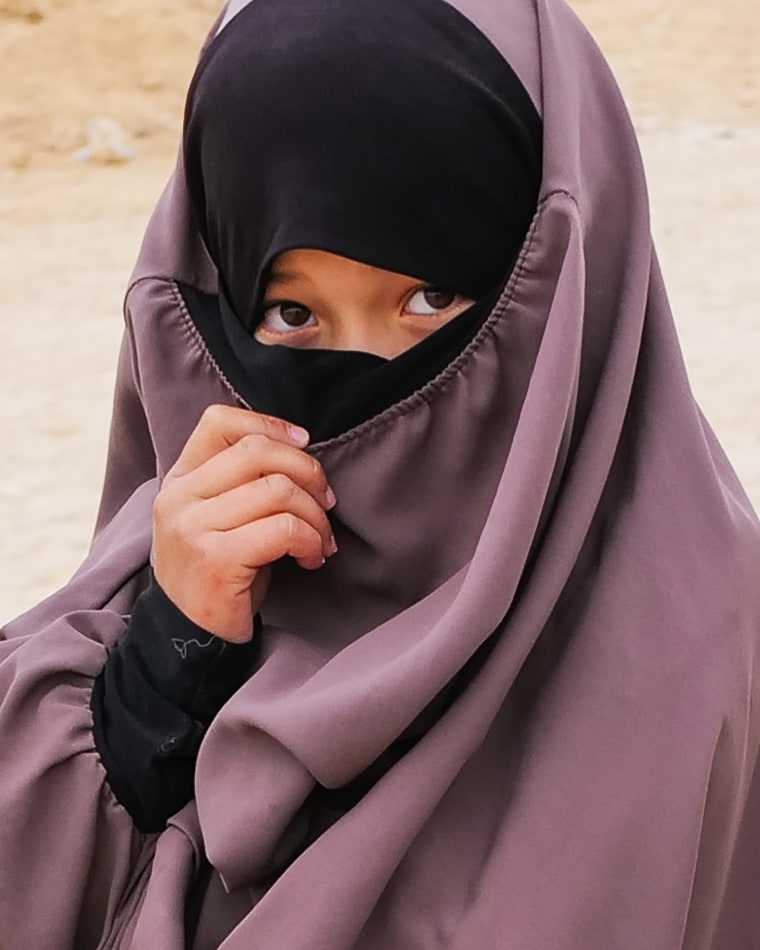
With limited resources, she said staff could guard only the perimeter, meaning violence was rife inside what she called “ one of the most dangerous camps in the world.”
“There have been murders inside, and some are armed with weapons,” she said, adding that there were regular escape attempts.
Inside the camp, in a section dubbed The Annex, the wives of foreign ISIS fighters and their children are held, around 6,000 people from 51 countries. Many of their governments have shown little or no interest in repatriating them in the six or so years they have languished in the camp.
Considered by the SDF to hold the most extreme residents in the whole camp, The Annex is fenced off from the rest of the facility, with guard posts standing at the exit.
Inside, wild dogs pick through piles of garbage, near trash-strewn muddy pathways and open sewers.
Women gather together, all fully covered in the Islamic niqab, as hundreds of young children from strikingly diverse ethnic backgrounds wander through the squalor. There is little electricity or running water, and their patchwork plastic tents offer meager protection against Syria’s winter chill.
In another part of The Annex kids chant “Allahu Akbar,” Arabic for “God is great,” while raising a single finger in the air, a trademark of ISIS. After hurling vulgar insults and threatening violence, they start to throw stones.

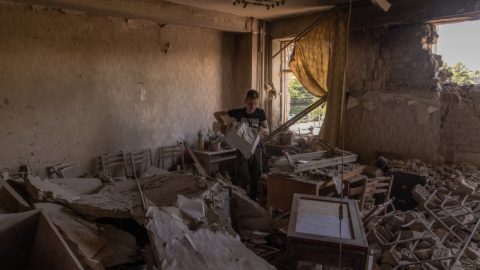
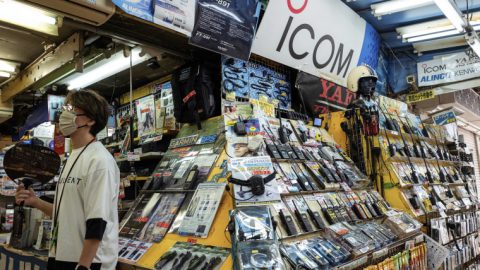
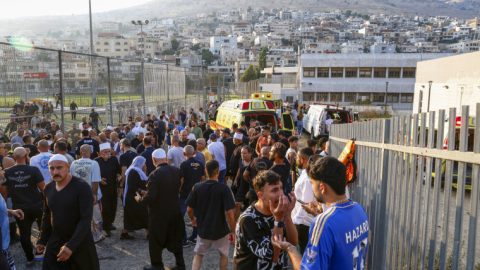

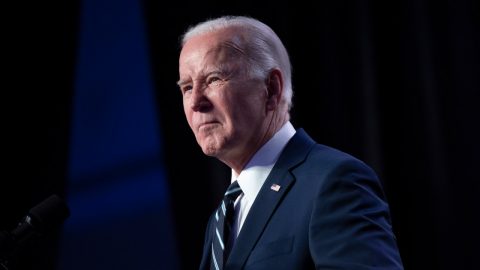
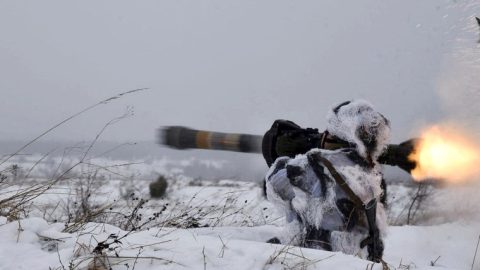
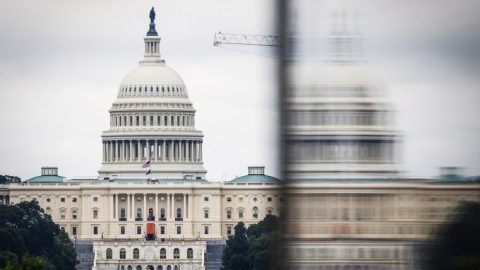
Recent Comments